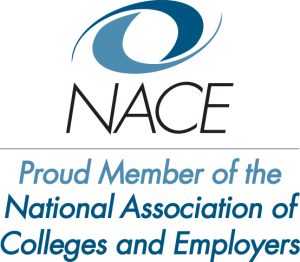A Pro Tip for PathwayU Learners: Start Building Your Social Capital
You've taken the PathwayU assessments, read through your results, explored your career matches, and identified a few career paths that pique your interests. Now what?
A good place to start is by reading the career information available on PathwayU that outlines job descriptions, typical tasks, and the knowledge, skills, and abilities needed for various roles. During this process, you may be able to narrow down your list and determine which of the career paths on the list interest you the most.
After that, I urge students to conduct informational interviews to take their career exploration a step further.
A person who currently or previously held a role you’re interested in learning more about is a great source of job-relevant information. Conducting informational interviews will help you gain more knowledge about specific roles, and narrow down potential career paths.
What is it?
An informational interview can be short, long, formal, informal, in-person, via videoconference, or over the phone. A person can conduct an informational interview no matter how old they are or how much experience they have. Essentially, an informational interview is a job-related conversation with the intention of gathering information about jobs, organizations, education, and experience. The benefits of informational interviewing include learning how to prepare for certain careers paths, what challenges you might expect in given roles, and how various organizations operate. An informational interview give you an “inside scoop” from someone working within the trenches, and has an added benefit of giving you a start on building a professional network within that field of work.
To conduct a successful informational interview, follow these five steps:
1. Find the right person.
After examining your PathwayU Career Matches and identifying careers that intrigue you, it’s time to find someone to talk with that can offer you relevant insight. To accomplish this, start with people you already know; someone within your circle of friends and acquaintances may already be employed within the relevant occupation. If that’s not the case, ask people you know if they have any connection in that field. An introduction from a mutual friend often takes the edge off any nervousness you might feel in anticipating the interaction. Still, if no one in your social circle can help you, don’t fret. Instead, be bold and courageous, because those qualities will help you pursue your third option: cold-calling someone you haven’t previously met. To identify who that might be, use online resources like LinkedIn to find people who hold specific job titles, work for particular organizations, or who have earned a certain degree. Finding someone who shares something in common with you (e.g., attended the same high school or college, is part of the same group on LinkedIn, volunteers for a similar cause) might make the next step easier.
2. Reach out and schedule the interview.
Reaching out to a stranger can feel daunting, but you will find that many people out there are willing to help and share their experiences. Compose an e-mail or leave a voicemail that is cordial and descriptive.
Here is an example:
“Hello, Mr. Thompson! My name is Jane Doe and I’m a psychology major at Colorado State University. I noticed you are a Training and Development Specialist with Acme Corporation. I’ve recently become very interested in talent development and would like to learn more about this field, as well as your education and experience. Do you have some time in the next two weeks to talk for 20-30 minutes? Thank you, Sally”
If someone referred you to this person, be sure to mention that contact in your message.
3. Write down a list of questions you want to ask.
If you’re limited for time, you may want to consider prioritizing your question list to make sure you get to your most important questions answered. Your questions can be geared toward their current job, past experiences, education, general advice, favorite parts of the field, challenges within the field, etc.
Here are some sample questions to consider:
- How did you get your start in this field?
- What does a typical day on the job look like?
- What do you like most about working in this industry? What do you dislike most?
- How does a typical career path unfold within this field?
- What sorts of changes are occurring in your field, and how should a newcomer prepare for them?
- What skills make or break someone in this line of work?
- What advice do you have for someone thinking about entering this field?
Try to conduct research on their background before your interview and come up with specific questions based on their education and previous roles.
4. Conduct the Interview.
If you decide to meet in person, be sure to dress professionally and arrive on time. Start off by introducing yourself and a bit about your own background. Be prepared to take charge of the conversation, but let the conversation flow naturally. Be mindful of their time and be sure to wrap it up during the agreed-upon timeframe. Thank them for their time. But, most importantly, be yourself!
5. Follow up.
Send a follow-up thank you note after your conversation. Thank them for their willingness to share their experiences with you and offer you career advice. Consider summarizing your favorite or most helpful part of your conversation.
Remember this:
Not only do informational interviews help you learn more about the career paths you might be interested in, they also help to foster your communication skills and your ability to talk about your own interests and experience. This is great practice for real interviews.
So, what are you waiting for?
Find one person you would like to talk to this month about their career journey, education, and experience. You won’t regret it!
-1.png?width=288&height=67&name=PathwayU_PGLogo%20(1)-1.png)










